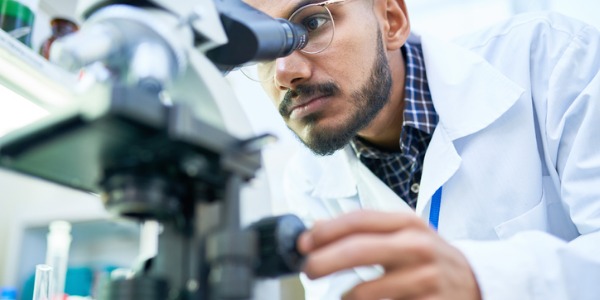What is a Cytotechnologist?
A cytotechnologist is a 'cell detective', and plays a crucial part in the discovery and detection of disease, cancer, and pre-cancerous changes in cells using a microscope. They compare normal and abnormal cell anatomy and then evaluate the significance of the differences in order to identify disease in various stages.
Cytotechnology is a health specialty that offers exciting possibilities for those interested in a career in science and a significant role in health care.
What does a Cytotechnologist do?

Cytotechnologists are responsible for the microscopic examination of cells. They work with other laboratory members evaluating human cell samples. Once variances are identified they are responsible for determining the level of significance for these abnormalities. They are an integral part of diagnosing diseases and abnormalities that affect human lives.
The cytotechnologist receives human samples and prepares them for examination using standardized, scientific processes. Preparing slides accurately is extremely important in order to obtain accurate results.
The slides are then examined using a variety of microscopic equipment. Once abnormal cells are identified the technologist uses their knowledge of cell anatomy and disease to determine the significance of the abnormalities.
Cytotechnologists are responsible for writing a detailed report of their findings. Once the report is completed it is forwarded to a pathologist. The pathologist confirms and signs off on the cytotechnologist’s report, and forwards it to the patient’s physician.
What is the workplace of a Cytotechnologist like?
Cytotechnologists work in laboratories. A laboratory may be in a hospital, independent lab, or research facility. The labs can be noisy at times. They contain a variety of dangerous chemicals and sophisticated machinery. Cell samples can carry communicable diseases. The technologists must follow established policies and procedures to ensure they stay safe. Space is usually limited and must stay clean and organized.
People in this profession will spend hours sitting on a lab stool looking into a microscope. They carefully compare each part of the cell with normal cells, looking for even the slightest difference. Throughout their workday, they will move about the lab and use various personal safety devices such as gloves, gowns, lab coats, face shields, and other personal protective equipment.
Cytotechnologists are also known as:
Certified Cytotechnologist